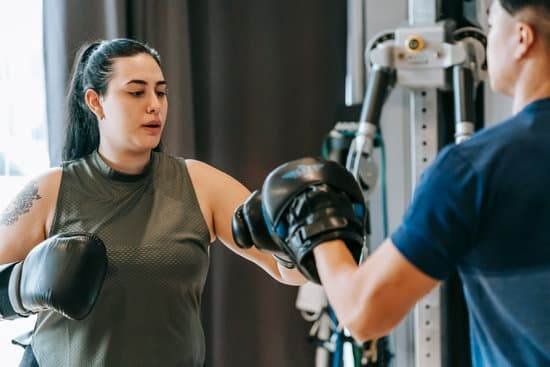Introduction
Becoming a certified personal trainer is an important step in becoming a qualified professional in the fitness industry. It’s important to recognize, however, that having a certificate does not make someone a personal trainer. Instead, obtaining and maintaining a certification is only the first step.
A qualified personal trainer should have more than just a certificate – they should have knowledge of proper exercise techniques and safety protocols, as well as excellent customer service experience. A professional will always stay up to date with the latest fitness trends and continue their education by attending workshops and seminars. Only then can someone truly call themselves a reliable personal trainer who can effectively help others reach their goals safely and effectively.
Good communication skills are also essential when working with clients. A qualified personal trainer needs to be able to explain each exercise in detail while at the same time providing motivation and assurance to their clients that they are going to succeed in achieving their goals. Having a positive and encouraging attitude while teaching is key for creating strong relationships between trainers and clients which result in more successful workouts sessions.
In addition, personal trainers should strive to expand beyond being just trainers but rather becoming role models and mentors for those training under them. By demonstrating proper form on exercises when leading classes or providing one-on-one sessions can further encourage athletes or gym enthusiast that anything is possible with hard work as long as it’s done correctly.
Having the right mindset, talking positively about fitness activities, staying positive even after failures — all these things are what sets apart a good from an excellent expertise who knows how to interact with customers so that both parties get maximum benefits out of an encounter – whether it’s physical or mental support needed from trainers – Building trust is the foundation stone for any success story!
What It Takes to Become a Professional Trainer
Becoming a professional personal trainer takes more than getting a fitness certification. While obtaining a fitness certification is an important step, it is just the beginning of becoming a qualified and successful personal trainer. Here are some of the essential steps to take in order to become a professional personal trainer:
1. College Degree – Most employers will require at least an Associates degree in health and wellness, kinesiology, exercise science, nutrition or similar field. Those who want to specialize will get their degree in dietary supplements, sports psychology, exercise physiology or biomechanics. Additionally, some employers may require personal trainers to hold certifications from the National Strength and Conditioning Association (NSCA), American Council on Exercise (ACE) or other governing bodies in their respective fields.
2. Educational and Training Programs – There are numerous educational & training programs that potential personal trainers can enroll in to gain additional knowledge and experience. These programs typically include intensive practical courses that illustrate how to work with clients as well as courses on developing safe exercise programs tailored to individual goals & challenges of specific clients.
3. CPR/AED Certification – A personally trainer must be certified in CPR or automated external defibrillator (AED) use due to the physical nature of their job responsibilities & potential client injury risk. These certifications must be renewed periodically thereafter as required by the employer or governing body such as NSCA or ACE.
4. Mentoring/Internship Programs- Experienced mentorship & apprenticeships are an important part of becoming a professional personal trainer that allow for shadowing opportunities for hands-on training experience with clients before going out into practice professionally . Many mentors may even provide guidance with client development strategies such as how to retain them long-term as your established base expands over time .
The Certification Misconception
Despite the fact that many people assume that a certificate makes them a professional personal trainer, this is not actually true. Having a designated fitness certification only means that you have gained knowledge in the field. It does not mean that you are thoroughly prepared and experienced enough to safely and effectively train another individual to reach their goals and be successful in their pursuit of better health and fitness. Certified trainers must complete an accredited training program with classroom instruction as well as on-the-job experience before they can gain the necessary qualifications, obtain the skills and obtain complete familiarity with various equipment and techniques related to being a certified personal trainer in order for them to competently assist others. Experience also allows them to develop an eye for potential problems when designing customized programs which can detect underlying issues or prevent potentially dangerous situations from occurring. Many certifications also require continuing education so trainers may stay up-to-date with newly released information surrounding training practices, nutrition, injury prevention and more. A certificate alone does not make someone a personal trainer – knowledge, training, experience, skill and safety should all come into play before one can call themselves a professional.
Requirements for a Quality Training Program
A certificate may be a necessary step in becoming a personal trainer, but it is not enough to guarantee quality training. While having certified credentials can demonstrate that a person has some knowledge of the calculations, physiology, and anatomy involved in physical fitness instruction and evaluation, it does not ensure that an individual has received all of the skills needed for providing an effective, quality program. Anyone considering personal training should look into programs that offer educational experiences as well as additional preparation such as hands-on practice sessions with style of equipment used in the fitness industry and opportunities to work with clients directly in order to reach optimize learning goals. A good provider will also provide continuing education opportunities and networking activities to keep trainers up-to-date on the latest trends and best practices when it comes to teaching principles of health and wellness. Additionally, trainers should have access to resources like evidence-based program design features, nutritional literacy certifications for lifestyle support, exercise prescription guidelines for aesthetics or metabolic performance goals and injury prevention materials. Together this comprehensive package will provide any personal trainer with the highest level of confidence for program delivery success no matter whether it’s done virtually or in person.
The Dangers of Unqualified Trainers
Certification is extremely important when it comes to becoming a personal trainer. While having a certificate may mean that you know the basics of training, it does not guarantee that aindividual is capable of providing good quality instruction and guidance on fitness programs. There are several dangers associated with hiring an unqualified personal trainer such as:
1) Risk of Injury – Unqualified trainers often do not possess the knowledge necessary to properly assess the safety of exercises and workouts they recommend to clients, which can lead to injuries.
2) Lack of Proper Knowledge – Without an understanding of the human body, principles of kinesiology, anatomy, diet and nutrition and exercise execution; an unqualified trainer could cause more harm than good.
3) Costly Mistakes – Bad advice from an unqualified trainer can be very costly for clients whether in terms of time without results or medical expenses due to injuries sustained from incorrect training techniques.
4) Limited Scope – An unsuitable trainer may only be able to offer services which are limited in scope such as basic instruction on use of gym equipment rather than offering comprehensive fitness plans tailored for each individual’s needs.
In conclusion, regardless of how inexpensive or experienced someone claims to be, always make sure you hire a qualified personal trainer who is certified and insured before embarking on any fitness regime!
Conclusion
A Certificate Does Not Make You A Personal Trainer; however, it is an important factor to consider when hiring a training expert for yourself. Hiring a personal trainer who has achieved a certification demonstrates their commitment to best practices and professional standards in the field of exercise science. An individual with a certification and experience in the area can provide you with guidance and instruction tailored to your physical condition, health and fitness goals.
Additionally, certified personal trainers may have more knowledge of current safety protocols, applicable laws, and appropriate exercise procedures when working with those at risk for medical complications such as high blood pressure or pre-existing heart conditions. The scope of practice for their job description is also based on state regulations certified trainers must abide by in order to maintain their credentials. Lastly, they will come equipped with the right tools such as proper forms, assessments, and measurements designed to measure your progress over time. A qualified trainer should be able to assess your physical abilities at the outset while creating desirable outcomes through prescriptive exercise programming that yields long-term results.
When seeking out a personal trainer its wise to do research and make an informed decision about who you hire to ensure you get your money’s worth in quality service that delivers transformational results. Ultimately its beneficial to hire an experienced certified professional who works within their scope of practice while taking into account your specific needs as an individual client from start to finish.

Passionate about providing useful information to anyone with an interest in the field of Personal Training, I strive to pass on to our readers quality information and to answer any questions about Personal Trainers, the work they do and how to become one.





